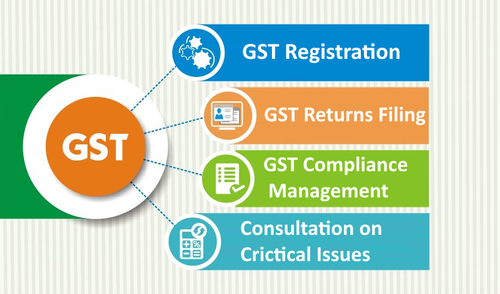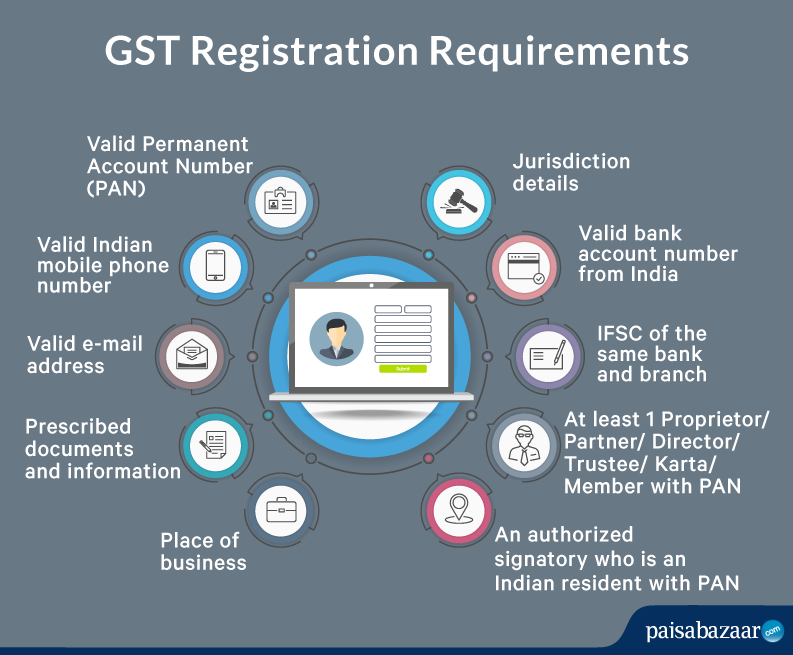Leading Tips for a Smooth Singapore GST Registration Experience
Leading Tips for a Smooth Singapore GST Registration Experience
Blog Article
Optimizing Tax Performance: Expert Tips on Navigating the GST Registration Maze for Small Companies
Navigating the elaborate landscape of Product and Services Tax (GST) enrollment can be a labyrinthine task for small organizations intending to optimize their tax obligation performance. In this discussion, we will certainly check out experienced understandings and actionable guidance that can empower small businesses to browse the GST enrollment puzzle successfully and optimize their tax performance.
Eligibility Requirements
Eligibility requirements for Small company GST Registration incorporate details requirements that organizations must satisfy to follow tax obligation regulations. To certify for GST enrollment, an organization needs to have an annual turnover exceeding the limit set by the tax obligation authorities, which varies by country. Additionally, services included in inter-state supply of goods or solutions, or those selling goods online, may be called for to register for GST, irrespective of their turnover. It is necessary for organizations to accurately establish their eligibility based on these turnover thresholds to stay clear of fines for non-compliance. Singapore GST Registration.

Documentation Requirements
To effectively finish the process of GST registration, local business have to guarantee they have all essential documentation in order. The needed documentation usually includes proof of company registration or identity, address and incorporation proofs of business proprietor, photographs, checking account information, and proof of the primary place of service. Additionally, businesses require to provide details of their organization activities, consisting of the products or solutions supplied. It is vital to make sure that all papers are precise, up to day, and in the specified style to avoid hold-ups or rejections during the enrollment process.
Besides the required files, businesses may also be needed to submit additional information based on their particular situations. This could consist of documents associated to collaborations, the consent of signatures, or any kind of various other pertinent arrangements. Maintaining all essential documents arranged and conveniently obtainable can improve the registration procedure and help companies abide with the needs successfully - Singapore GST Registration. Failing to provide the needed paperwork may result in delays or perhaps being rejected of the GST registration application. For that reason, precise attention to information and adherence to the documents standards are important for a successful GST enrollment process for small companies.
Timing Factors To Consider
Considering the crucial paperwork needs have been diligently attended to, the following essential element for small companies starting the GST enrollment procedure is the tactical administration of timing considerations. Timing plays a critical duty in GST registration, affecting not just conformity however also monetary elements of business. Small companies require to carefully prepare the timing of their GST enrollment to take full advantage of advantages and decrease prospective risks.

Additionally, companies need to align the timing of their GST enrollment with their functional preparedness. Appropriate preparation, such as updating bookkeeping systems and training staff, is important to effortlessly integrate GST demands into day-to-day procedures. By tactically managing timing considerations, tiny businesses can navigate the GST enrollment process efficiently and maximize their tax obligation effectiveness.
Registration Refine Tips
Effectively browsing the GST enrollment procedure requires tiny organizations to carry out positive and strategic enrollment process tips. One crucial pointer is to make certain all needed files are conveniently available prior to starting the enrollment process. This consists of company enrollment files, evidence of address, bank declarations, and recognition proofs of business owners. Validating the accuracy of the details offered is equally crucial to avoid hold-ups or rejections.
Additionally, comprehending the limits and needs for GST registration based on the details state or territory pop over to this site where business runs is essential. Some states have different turnover limits that cause obligatory registration, so being notified concerning these thresholds can aid companies prepare in advance.
One more beneficial pointer is to consider looking for professional support from accountants or tax experts that focus on GST enrollment. Their knowledge can enhance the process, minimize errors, and make sure compliance with all policies.
Compliance Best Practices
Little organizations must prioritize conformity to prevent fines and maintain a great standing with tax obligation authorities. Tiny business owners must routinely examine federal government standards and seek professional recommendations if needed to guarantee they are fulfilling all needs. By incorporating these compliance finest methods into their operations, tiny businesses can navigate the complexities of GST registration with confidence and effectiveness.
Final Thought
To conclude, local business can browse the GST enrollment maze by guaranteeing they meet eligibility criteria, gather called for documents, consider timing ramifications, adhere to enrollment procedure ideas, and follow compliance best techniques. By making the most of tax obligation efficiency via correct GST registration, services can improve their economic monitoring and procedures.
Navigating the complex landscape of Item and Solutions Tax Obligation (GST) registration can be a labyrinthine job for small services intending to maximize their tax performance.Qualification demands for Small Company GST Registration incorporate particular requirements that businesses have to fulfill to conform with tax laws. The needed documentation generally includes evidence of company enrollment or unification, identity and address proofs of the business proprietor, photographs, financial institution account details, and evidence of the principal area of company. In addition, services need to supply information of their service activities, including the items or services supplied.Successfully navigating the GST enrollment process needs tiny companies to apply critical and proactive registration procedure tips.
Report this page